The Sweyne Park School is a mixed comprehensive school for pupils aged 11-18 years in Essex. The History, Geography, Modern Languages and Music departments are all members of the PTI's Schools Programme. Here they celebrate their member departments and discuss how our programme has helped to bring about changes across the school.
History department
Recent studies have demonstrated that although many pupils find history interesting and enjoyable, and this is certainly true at The Sweyne Park School, where many pupils opt to continue their studies into both GCSE and A level. Many students have a very limited understanding of why they are studying history.
The study of history helps pupils to question the world around them, and to understand people and societies, as well as teaching invaluable life skills such as how to present an argument and make a judgement.
We asked students to consider why it is important to study history - ideas that we will be keen to pass onto new historians in year 7 when it is their turn to consider this pertinent question.
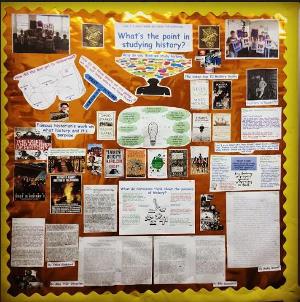
History should help pupils better understand the present, and to ensure that pupils continually challenge their thinking on why they study history. We created a wall display modelling work done in class, and displayed some of the excellent pieces of writing produced during this enquiry, to raise the profile of History.
We are currently considering the impact that enrichment has on engagement in history – we are keen to ensure that we provide a well-rounded curriculum, and enthuse learners to write, read, debate and research our subject beyond the classroom. The school offer many opportunities beyond the classroom for example all year 9 pupils are offered the opportunity to participate in our annual trip to the WW1 battlefields. This year some pupils undertook independent research to find out about their own relatives that sacrificed their life during the Great War. One of our pupils located her Great Grandfather’s name on the Menin Gate and was visibly moved by the experience. We ran a competition for the best photos of the day, and hope you will agree that the photo below taken at Hill 62 by students captures the mood of the visit.
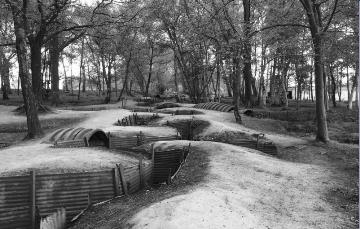
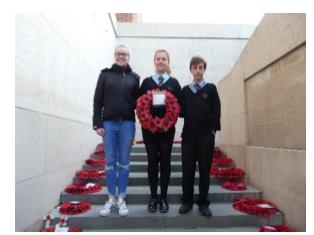
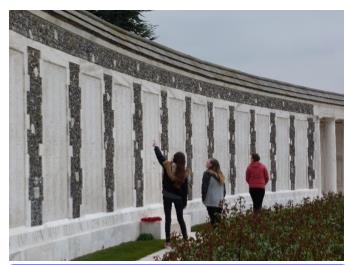
It has been an interesting few years politically and our students have been determined to ensure their voice is heard. Many students have taken part in mock debates for recent elections, and for the ‘Europe’ referendum. The age of the participants has ranged from 11 to 18, and it has been refreshing to see so many young people engaged with current affairs.
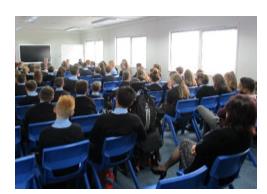
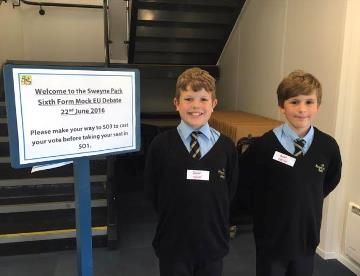
We are now looking to expand the scope of our history ambassador role. Year 12 historians apply for this position when they begin their studies in September and the competition is always very high. The purpose of the role is to act as a role model to younger students, and they always do a fantastic job at promoting the subject. Students created and ran an event for our key stage 3 history hunters to commemorate 950th anniversary of the Battle of the Hastings 1066, and it will be exciting to see how we can expand their role within the history department.
Modern Languages department
The ability to understand and speak a modern foreign language is a valuable asset. We have always encouraged pupils to continue their language studies to GCSE. The school has a very high EBacc entry at GCSE (70%) and this has led to us being able to offer three languages at A Level: French, German and Mandarin.
Our three-year project working with the Associate Department Programme has focused on our provision of A Level Languages within the new Sixth Form. During our first year, we considered developing the provision of extra-curricular trips for pupils which would engage, enthuse and instill a desire to learn more about the language and culture as well as provide opportunities to hear the target language in authentic settings and practice their own speaking skills.
Institut Français, London
French AS and A2 students went on a trip to the Institut Français in London for a Set French Day on the topic of ‘Le Cinéma’. They started with a library activity in the ‘Médiathèque’ in which they had to find information in groups to feed back to the rest of the participants.
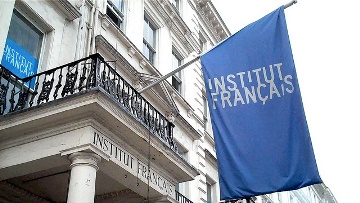
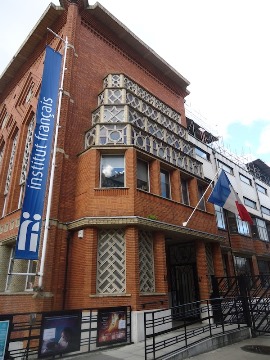
This was followed by the showing of the French film, ‘Persepolis’, at their cinema. These activities gave students the opportunity to discover more about the French language, the resources available at the Institut Français and to practise their reading and listening skills, at the same time as experiencing French culture. The day was particularly useful for both the AS and A2 students as the first section covered the topic of French cinema and film (AS curriculum) and the film addressed the issues of multiculturalism and integration (A2 curriculum).
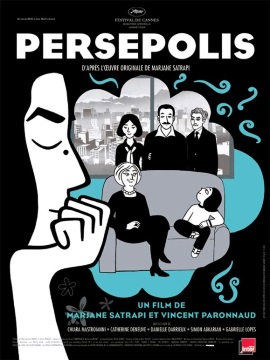
Work Experience in France
We continued to advertise work experience placement scheme in France, which one student completed twice during her time in the sixth form. She said: "My French has improved beyond belief. By the end of the week, I could confidently hold conversations of all kinds. This experience has given me a well-needed boost for my A2 French exams.”
French residential trip to Château de la Baudonnière, France
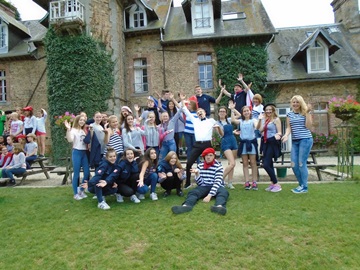
We offered the A level pupils the opportunity to join a residential trip we had been running for year 10 and 11 pupils to le Château Baudonnière, which is a multi-activity centre where all activities are conducted in French. The A Level students had additional activities to meet their level of French. Two of our AS pupils participated in this trip.
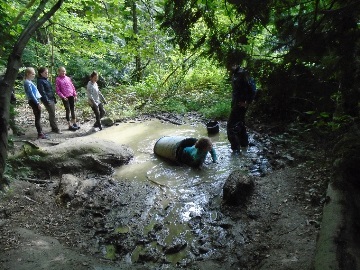
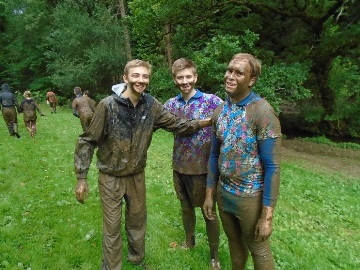
As usual, the activities included the ‘Parcours de la Santé’ (an obstacle course in mud), bread making, team work activities and French lessons. Pupils visited a local market and watched a film in French in a local cinema. They also visited Arromanches, where the British troops landed in Normandy in 1944. Afterwards, they continued their historic tour to see the ‘Tapisserie de Bayeux’, an embroidered story board showing the Battle of Hastings in 1066. They finished the day shopping at a local supermarché, followed by sampling savoury and sweet crêpes in a Crêperie.
Instructions during all of the activities were in French – quite a challenge, which our pupils conquered successfully!
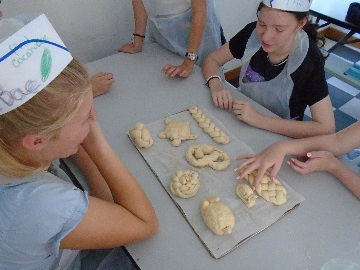
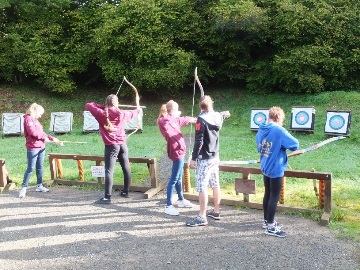
Residential trip to Berlin, Germany
All pupils enjoyed the cultural visits on offer and were enthusiastic about speaking German out during the trip to Berlin. The sixth formers went to the Kaethe Kollwitz museum and this had a massive impact on their learning, meaning that they were then able to talk and write about this Cultural Topic in the A2 German speaking and writing exams. During the visit pupils filled in workbooks and following the visit the year 10 pupils used some of the information gathered in Berlin in their controlled assessments.
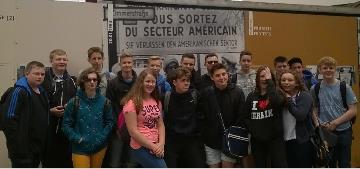
Pupils visited all the main attractions of Germany’s capital city: Potsdamer Platz; Checkpoint Charlie; the Kaiser Wilhelm Gedächtniskirche; the Story of Berlin Museum with the Cold War Nuclear Bunker below; the Brandenburg Gate and Berlin Cathedral. They enjoyed a tour of the Reichstag and learning about the German political system. There was an evening visit to the Fernsehturm (the TV tower) that was built by the German Democratic Republic in the late sixties to show off their building prowess. At a height of 368 meters this was literally the high point of the trip and there were stunning views of the whole city.
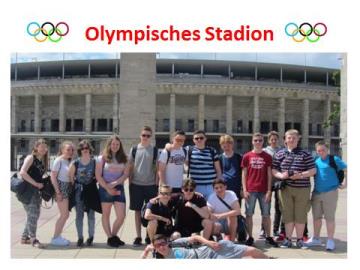
Pupils learn about the Nazis period during a visit to the Topography of Terror exhibition. They also learnt about the hardship the Berliners experienced in the 1960s, 70s and 80s as the Berlin wall separated the city and we looked at the ingenious ways East-Berliners managed to escape to the West.
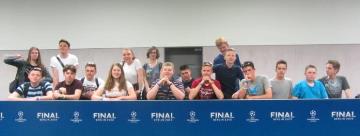
Residential trip to China
來自中國的問候(Greetings from China)
Twenty key stage 4 and 5 Mandarin students and three teachers travelled to China for a unique visit they will never forget. The residential trip allowed them to learn more about the culture and practise their language skills.
They visited the great wall of China, the palace of the forbidden city, a bamboo forest in Moganshan and spent time at a school to make new friends and compare school life in China to that in England. Our intrepid explorers had to rely on their Mandarin linguistic skills as English is not widely spoken and they were not allowed to rely upon the teachers.
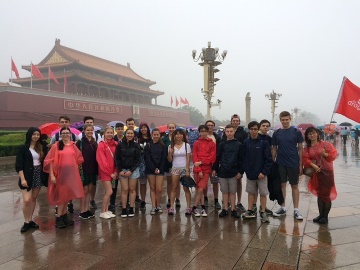
Students had the opportunity to explore the wealth of culture, history and diversity the country has to offer – from the ancient past of its capital Beijing to the exciting modern developments in Shanghai. The experience has not only been of great value to their Mandarin lessons, but will also benefit them in other subjects such as Art, Business Studies and Geography.
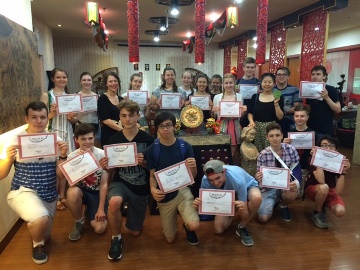
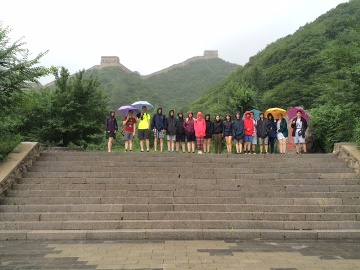
China was a school trip like no other previously offered by the Sweyne Park School, and will be remembered by students and staff for a long time.
